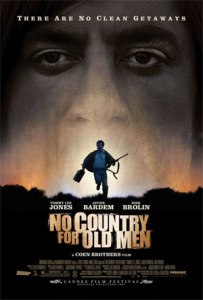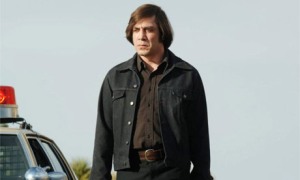 This year in August, I will turn fifty-two.
This year in August, I will turn fifty-two.
For the past few years, thoughts of my eventual demise have been persistent at the back of my brain. It is not actually fear of death – it is more like the certainty of an unpleasant fact of life which cannot be avoided; something you would like to put off as much as possible, but which will have to be faced ultimately. The aspect of death which makes facing it so worrisome is that there is no getting over it and continuing with life. Life ends there, full-stop. The entity that is “I” will vanish. (Maybe there is an afterlife: I do not know, neither do I believe.)
The thought of the total annihilation of consciousness is such a traumatic event to contemplate that we shy away from facing it. In the Mahabharatha, there is a famous dialogue Yudhishtira and the God of Death, Yama in the guise of a Yaksha, where he questions the prince on various aspects of life and the universe. In answer to his question on what is the most surprising thing in the world, Yudhishtira replies:
Ahanyahani bhootani
Gacchantiha yamalayam
Seshah sthavaram icchanti
Kim ascharyam itah param(Every day, countless number of living entities go to the abode of the God of Death. Yet, the remaining aspires to live for ever. What can be more surprising than this?)
Indeed!
***
Most mythologies of the world have tried to grapple with the grim fact of death – mostly by creating some kind of eternal realm where life never ends. The Levantine myths, with their linear concept of time, have created worlds where souls are rewarded or punished according to their behaviour on earth – for eternity. The Eastern myths (notably Hinduism) with their cyclical concept of time have life renewing itself continuously: for a Hindu, death is the merger of the individual soul (atman) with the universal soul (Brahman) until rebirth, until ultimate knowledge frees it from this cycle. It is only in Buddhism that annihilation of the soul is accounted for; but then, for the Buddha, the soul does not exist anyway.
Ingmar Bergman says he made the movie The Seventh Seal to counteract a sudden fear of death which gripped him, and that the fear left him after he finished it. The symbolism in the movie, drawn heavily from the plague years, shows death in form of an unwelcome visitor – the grim reaper with his scythe. The iconic Malayalam writer M.T. Vasudevan Nair has called death a “jester with no sense of stage”. But what of the death that comes at the end as a welcome guest – a fitting finale to a life lived to the fullest? Should not be one prepared to meet it gracefully?
In this context, I am reminded of the first lines of the poem Rabbi Ben Ezra by Robert Browning. I read it first in my teens, when old age and death were far, far away, but those lines have stayed with me:
Grow old along with me!
The best is yet to be,
The last of life, for which the first was made:
Our times are in His hand
Who saith “A whole I planned,
Youth shows but half; trust God: see all, nor be afraid!”
The best is yet to be: here, the poet puts forth a startling theory – youth is made for old age! The carefree days of the morning of our life and the sweat and toil in the harsh noon are but preparations for a peaceful evening, when we can sit back on the easy chair with a drink at our elbow, contemplating the approaching night and eventual blissful sleep.
Needless to say, as a teen, I could not appreciate this philosophy. However, as I grew older, I found it reflected in Kazuo Ishiguro’s beautiful novel, The Remains of the Day; in which a butler, Stevens, contemplates his life on a motoring trip through the West Country. In typical “Jeeves” fashion, Stevens reflects on his life with his employer Lord Darlington who was most probably a Nazi sympathiser, the death of his father, and his unrealised love for the housekeeper Miss Benton. In his spare prose, Stevens muses upon his lost opportunities – his life could be well considered misspent. However, towards the very end of the novel, a casual encounter with another retired butler at the pier provides him with a totally new point of view. After hearing about Stevens’ disappointments of the multiple wasted opportunities of his life, of the memories of what could have been, he says:
“Now, look, mate, I’m not sure I follow everything you’re saying. But if you ask me, your attitude’s all wrong, see? Don’t keep looking back all the time, you’re bound to get depressed. And all right, you can’t do your job as well as you used to. But it’s the same for all of us, see? We’ve all got to put our feet up at some point. Look at me. Been happy as a lark since the day I retired. All right, so neither of us are exactly in our first flush of youth, but you’ve got to keep looking forward.” And I believe it was then that he said:
“You’ve got to enjoy yourself. The evening’s the best part of the day. You’ve done your day’s work. Now you can put your feet up and enjoy it. That’s how I look at it. Ask anybody, they’ll all tell you. The evening’s the best part of the day.”
Yes, indeed: the evening is the best part of the day…
***
Indian culture tells us that there are four parts to a man’s life: the four ashramas – Brahmacharya, Garhasthya, Vanaprastha and Sanyasa. In the first part, you spend your life as a student, concentrating only on the life of the intellect: in the second, you live as a householder, taking care of the family and bringing up the children: in the third, children all grown up and all responsibilities discharged, you leave for the forest for a life of contemplation: and in the last, you become a virtual ascetic in preparation for death. I don’t know how implementable these are in the modern world, but I think this model is much more peace-enabling than the current one, where we keep on working till we drop dead.
I realise that I am now in the afternoon of my life. My son is in the ninth grade: in seven to eight years, he will develop his own wings and fly away to his own future. My time for Vanaprastha is approaching. Even though I do not plan to physically move away to the forest, for all practical purposes, I shall withdraw from social life to one of reading and contemplation.
Because evening is the best part of the day: I want to put my feet up and relax.
Grow old along with me.




